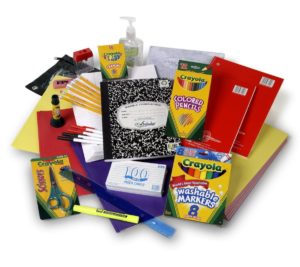Dear Liz: I have four daughters, now in their late 30s and early 40s. When they were very young, I started investing for them. As they began to earn their own money, I started Roth IRAs for them as well.
A decade ago, due to an unexpected divorce, a 30-day escrow and a move, I lost the paperwork for their accounts. After the investment company was acquired by another in 2015, I forwarded the new company’s contact information to my daughters. One transferred her account to another investment company, while her sisters left theirs in place.
Recently I found the old investment paperwork. The company has changed hands again, but the new company says it has no information about my three other daughters’ accounts. Can anything be done?
Answer: Since the latest company can’t find the accounts, your daughters should contact the escheat office of the state where you lived before your move.
Perhaps you didn’t update your address with the original company when you moved and the account statements or other mail were returned as undeliverable. If the company and its successor couldn’t find you — and some companies don’t look very hard — the accounts would be considered unclaimed and would have to be turned over to the state.
Links to state escheat offices can be found online at unclaimed.org, the website for the National Assn.
of Unclaimed Property Administrators.
The good news is that there’s no time limit for claiming previously unclaimed property.
The bad news is that some states will liquidate stocks and other investments after escheatment. If that’s the case, then the three daughters who didn’t move their accounts will have missed out on nearly a decade of investment returns.
 This week’s top story: Mortgage rates will not fall in March. In other news: Rental housing prices 2024, why some millennials don’t want kids, and managing credit cards when you grew up in a cash-only household.
This week’s top story: Mortgage rates will not fall in March. In other news: Rental housing prices 2024, why some millennials don’t want kids, and managing credit cards when you grew up in a cash-only household. Today’s top story: After a fall, crypto winter sets in. Also in the news: A new episode of the Smart Money podcast for kids on where money comes from, can job-hopping help retirement savings, and these states are having a tax-free back to school shopping weekend.
Today’s top story: After a fall, crypto winter sets in. Also in the news: A new episode of the Smart Money podcast for kids on where money comes from, can job-hopping help retirement savings, and these states are having a tax-free back to school shopping weekend. Today’s top story: How to afford big-ticket items for the year. Also in the news: A new episode of the Smart Money podcast on summer travel tips and conflicting financial priorities, how a Burbank teacher got their student loans forgiven, and 4 smart ways to teach kids about saving money.
Today’s top story: How to afford big-ticket items for the year. Also in the news: A new episode of the Smart Money podcast on summer travel tips and conflicting financial priorities, how a Burbank teacher got their student loans forgiven, and 4 smart ways to teach kids about saving money.